Top 10 Greatest Military Leaders
This is a list of the 10 greatest military leaders. Leaders who achieved great things in terms of military success. In all cases, their qualities as military leaders were crucial in enabling successful outcome
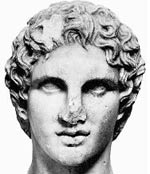 1. Alexander the Great (356 – 323 BC)
1. Alexander the Great (356 – 323 BC)
As King of Macedonia, he established an Empire from the Ionian Sea to the Himalayas in India. Loved by his men, Alexander inspired great loyalty.
2. Napoleon Bonaparte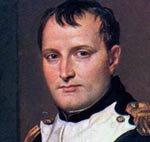 (1769 – 1821) As Emperor of France 1804-1815, Napoleon’s forces swept across Europe, gaining a hegemony over most of Europe. In many battles, Napoleon overcame numerical inferiority through his excellent use of tactics.
(1769 – 1821) As Emperor of France 1804-1815, Napoleon’s forces swept across Europe, gaining a hegemony over most of Europe. In many battles, Napoleon overcame numerical inferiority through his excellent use of tactics.
 3. Julius Caesar (100 BC – 44 BC) Under Caesar, the Roman Empire stretched to its furthers points – crossing the Rhine and into Britain for the first time.
3. Julius Caesar (100 BC – 44 BC) Under Caesar, the Roman Empire stretched to its furthers points – crossing the Rhine and into Britain for the first time.
4. Dwight Eisenhower (1890 – 1969) A five star General in the US army, Eisenhower was Supreme Allied Commander for the D-Day invasion of occupied Europe and the subsequent liberation of occupied Europe (1944-45).
(1890 – 1969) A five star General in the US army, Eisenhower was Supreme Allied Commander for the D-Day invasion of occupied Europe and the subsequent liberation of occupied Europe (1944-45).
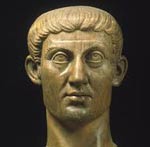 5. Constantine the Great (272 – 337) Constantine served as Roman emperor from 306 to 337. He successfully defeated both internal rebellions and consolidated the Roman Empire defeating the Franks, Alamanni, Visigoths, and Sarmatians.
5. Constantine the Great (272 – 337) Constantine served as Roman emperor from 306 to 337. He successfully defeated both internal rebellions and consolidated the Roman Empire defeating the Franks, Alamanni, Visigoths, and Sarmatians.
 6. Erwin Rommel (1891 – 1944) ‘The Desert Fox’ was admired by both his troops and enemies developing a reputation for invincibility. He was a commander during the invasion of France (1940) and achieved striking victories in the North Africa desert war.
6. Erwin Rommel (1891 – 1944) ‘The Desert Fox’ was admired by both his troops and enemies developing a reputation for invincibility. He was a commander during the invasion of France (1940) and achieved striking victories in the North Africa desert war.
7. Attila the Hun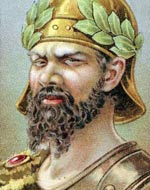 (5th Century) Ruler of the Huns who swept across Europe. His Empire stretched from the River Ural in the East to the Rhine (in the West), and the Danube to the Baltic sea in the north
(5th Century) Ruler of the Huns who swept across Europe. His Empire stretched from the River Ural in the East to the Rhine (in the West), and the Danube to the Baltic sea in the north
8. Saladin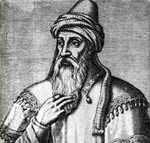 (1138 – 1193) United Arab armies and led Islamic opposition to Christian crusades. In 1187, he defeated the Crusader army and led the Muslim reconquest of Palestine.
(1138 – 1193) United Arab armies and led Islamic opposition to Christian crusades. In 1187, he defeated the Crusader army and led the Muslim reconquest of Palestine.
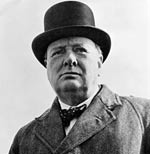 9. Winston Churchill (1874 – 1965) Winston Churchill became Prime Minister in May 1940, when Great Britain alone stood against Hitler. With stirring speeches, Churchill rallied the population and quashed those who wanted to make a deal with Hitler.
9. Winston Churchill (1874 – 1965) Winston Churchill became Prime Minister in May 1940, when Great Britain alone stood against Hitler. With stirring speeches, Churchill rallied the population and quashed those who wanted to make a deal with Hitler.
10. Genghis Khan – (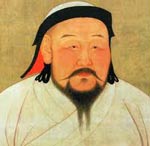 1162 – 1227) From humble beginnings, Genghis Khan conquered Mongolia and China and then created an Empire stretching into Central Europe. His Mongol hordes were unstoppable.
1162 – 1227) From humble beginnings, Genghis Khan conquered Mongolia and China and then created an Empire stretching into Central Europe. His Mongol hordes were unstoppable.
Other great military leaders
Akbar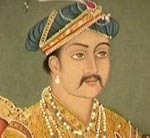 (1542 – 1605) The third Moghul Emperor, Akbar consolidated his Empire across India, through a series of striking military victories.
(1542 – 1605) The third Moghul Emperor, Akbar consolidated his Empire across India, through a series of striking military victories.
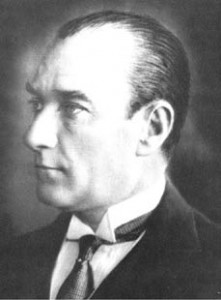 Ataturk (1881-1938)
Ataturk (1881-1938)
Military officer in Turkish army. Led the Turkish independence struggle and founded the Turkish Republic.
Boudicca (1st Century)
(1st Century)
Led British citizens in revolt against Roman occupation.
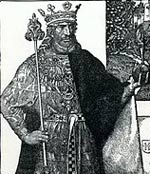
Legendary King of the Britons who defended England against Saxon invaders, uniting the country.
K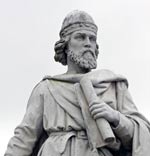 ing Alfred (849 – 899)
ing Alfred (849 – 899)
Educated King, who defended Britain against the Vikings.
Adolf Hitler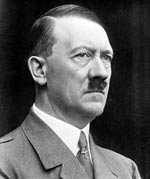 (1889 – 1945)
(1889 – 1945)
Dictator of Nazi Germany. Ordered invasion of Poland, Western Europe, North Africa and the Soviet Union.
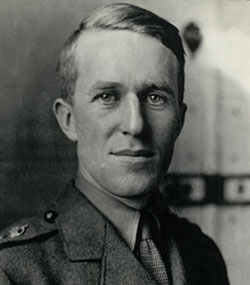 T.E. Lawrence (1888 – 1935)
T.E. Lawrence (1888 – 1935)
British officer who led the Arab revolt against the Ottoman Empire in Arabia.
 Abraham Lincoln (1809 – 1865)
Abraham Lincoln (1809 – 1865)
President of the US during the civil war. Led North to victory and preserved the Union.

Lead Chinese Communist party to victory during the long march and fight against the nationalists.
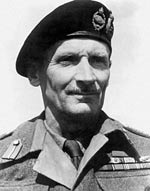 Bernard Montgomery (1887 – 1976)
Bernard Montgomery (1887 – 1976)
British General during World War Two. Led British divisions during the liberation of occupied Europe.
 Lord Nelson (1758 – 1805)
Lord Nelson (1758 – 1805)
British naval officer during Napoleonic wars. Won at Battle of Trafalgar
 General Patton (1885 – 1945) US Commander during Second World War, Patton distinguished himself in Africa, Sicily and in the liberation of Frances – especially during the Battle of the Bulge.
General Patton (1885 – 1945) US Commander during Second World War, Patton distinguished himself in Africa, Sicily and in the liberation of Frances – especially during the Battle of the Bulge.
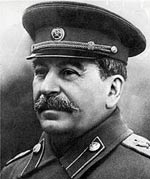 Joseph Stalin 1879 – 1953)
Joseph Stalin 1879 – 1953)
Leader of Soviet Union armed forces during the Second World War.

Leader of American forces during War of Independence
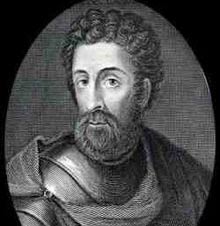 William Wallace (13th Century)
William Wallace (13th Century)
Scottish independence leader during war against English.
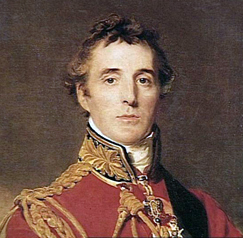 Duke of Wellington (1769 – 1852)
Duke of Wellington (1769 – 1852)
The general who defeated Napoleon at the battle of Waterloo.
